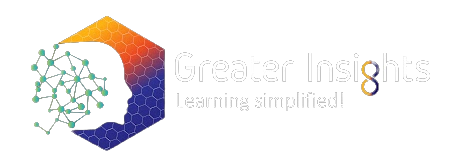Django
CloudLabs
Projects
Assignment
24x7 Support
Lifetime Access
.
Course Overview
The Django web development framework provides a fast, easy and secure method of developing rich websites using the Python programming language. This Django training course helps programmers learn to design, implement and manage web applications using Django. Through our Django course enable your team on how to use the Django core component set along with advanced modules techniques and third-party tools. Participants will have developed skills in a complete content-management website with user authentication advanced forms session management email notification functionality and a complete administrative interface.
At the end of the training, participants will be able to:
- 1. Install and Configure Python and Django in a development and production environment
- 2. Demonstrate the security implications of Django features, and develop secure websites with Django
- 3.Utilize Django Models to build an interface with powerful relational databases
- Django ORM
- 4.Design and develop forms (both ad-hoc and from Models and Data Models) and automate the validation and verification of data in those forms
- 5.Utilize Django to automate the production of Syndication Feeds (such as RSS)
- Implement, manage, and control Django’s administrative interfaces
- 6. Securely implement user authentication and access control using Django sessions
- 7. Discuss how to download, install, and utilize third-party Django applications
- 8. Utilize Django’s mail functions to send email notifications
- 9. Leverage Django messaging system to provide asynchronous messaging
- 10. Scale Django applications through the use of caching systems
- 11. Implement, maintain, and manage complete e-commerce, publishing, and other content-management systems using Django
Pre-requisite
- Sound understanding of the Python language
- Basic understanding of web technologies
- Basic understanding of Object Oriented programming and relational database concepts (no SQL knowledge is required)
Duarion
3 days
Course Outline
- About Django
- Django Components
- Django Pre-Requisites
- Downloading & Installing Django
- Choosing a Database
- Creating a New Project
- About View Functions
- Using Django’s HttpResponse Class
- Understanding HttpRequest Objects
- Using QueryDict Objects
- About URLconf
- Regular Expressions
- Expression Examples
- Simple URLConf Examples
- Using Multiple URLConf’s
- Passing URL Arguments
- About Templates
- Template Fundamentals
- Creating Template Objects
- Loading Template Files
- Filling in Template Content (Context Objects)
- Template Filters
- Template Tags
- More on For Loops
- Template Inheritance
- Easy Rendering of Templates
- RequestContext Processors
- Global Context Processors
- The Forms Module
- Creating the Form
- Generating Output From the Form
- Customizing Field Parameters
- Processing Form Data
- Custom Form Field Validation
- Generating Custom Field Errors
- Customizing Form Output
- About Database Models
- Configuring Django for Database Access
- Understanding Django Apps
- About Django Models
- Defining Django Models
- Understanding Model Fields & Options
- Table Naming Conventions
- Creating A Django Model
- Adding the App to Your Project
- Validating the App
- Generating & Reviewing the SQL
- Adding Data to the Model
- Primary Keys and the Model
- Simple Data Retrieval Using a Model
- Understanding QuerySets
- Applying Filters
- Specifying Field Lookups
- Lookup Types
- Slicing QuerySets
- Specifying Ordering in QuerySets
- ORM Configuration:
- Mapper Configuration
- Relationship Configuration
- Inheritance Mapping
- Advanced Collection Configuration
- Configuration Extensions:
- Declarative Extension
- Association Proxy
- Hybrid Attrbutes
- Mutable Scalars
- Ordered List
- ORM Usage: Session Usage and Guidelines
- Query API reference
- Relationship Loading Techniques
- Using Q Objects
- Creating Forms from Models
- Enabling the Admin Interface
- Creating an Admin User
- Cookies & Django
- The Django Session Framework
- Sessions in Views
- Session Tuning
- Installing Django User Authentication
- Using Authentication in Views
- Login and Logout
- Building your Own Login/Logout Views
- Authentication Decorators
- Adding & Deactivating Users
- Asynchronous Messaging
- Managing Permissions
- Simple Generic Views
- Using Generic Redirects
- Other Generic Views
- Create/Update/Delete Generic views
- Data Caching
- Setting up Per-View Caching
- Site Caching
- Cross Site Request Forgery
- Configuring Mail Settings
- Sending Email
- Other Email Functions
Reviews
"The corporate training provided by Greater Insights was truly exceptional. The trainers were highly knowledgeable and engaging, making the sessions both informative and enjoyable. I gained valuable insights and practical skills that I immediately applied in my work. I highly recommend Greater Insights for their professionalism and expertise."
Rahul NiraniaSamsung 
"As a participant of the corporate training program organized by Greater Insights, I was thoroughly impressed with the level of customization they offered. They took the time to understand our specific needs and tailored the training accordingly. The trainers were fantastic, and the interactive sessions fostered an environment of active learning. I am grateful for the valuable knowledge and skills I acquired."
Bhawna TiwariSamsung
"I cannot express enough gratitude to Greater Insights for the outstanding corporate training they provided. The trainers were not only experts in their respective fields but also incredible communicators. They created a dynamic and collaborative learning environment, which allowed us to learn from one another. The training surpassed my expectations, and I would eagerly participate in any future programs they offer."
Ashutosh SinghSamsung 
"Attending the corporate training sessions organized by Greater Insights was a game-changer for me. The trainers were not only experienced professionals but also inspiring mentors. They equipped me with practical tools and strategies that have significantly enhanced my productivity and efficiency at work. I wholeheartedly recommend Greater Insights to anyone looking to excel in their professional endeavors."
Somashekar MuniyappaInfogain 
"The corporate training program offered by Greater Insights was an enlightening experience. The trainers had a deep understanding of the subject matter and were able to break down complex concepts into easily digestible information. The interactive activities and case studies made the training engaging and relevant to our day-to-day work challenges. This training has undoubtedly boosted my confidence and competence."
Amresh DiwanInfogain 
"I had the privilege of participating in a corporate training program organized by Greater Insights, and I must say it was a transformative experience. The trainers' expertise and passion for their subjects were evident in every session. The training materials provided were comprehensive and well-structured, enabling us to grasp the content effectively. I am grateful for the valuable skills I acquired, which have greatly contributed to my professional growth."
Namratha BabuTorry Harris 
"The corporate training sessions conducted by Greater Insights were simply outstanding. The trainers went above and beyond to ensure that we understood the concepts thoroughly. The interactive nature of the sessions encouraged active participation and enhanced our learning experience. I am truly grateful for the practical strategies and techniques I learned, which have had a positive impact on my work performance."
Rahul BhashyamTorry Harris 
"Participating in the corporate training program organized by Greater Insights was an enlightening experience. The trainers were not only knowledgeable but also skilled at delivering the content in an engaging manner. The training materials were well-designed, and the real-life examples provided valuable insights. I am confident that the knowledge and skills I gained will significantly contribute to my professional growth."
Deepti JainTorry Harris 
"I can confidently say that the corporate training provided by Greater Insights was top-notch. The trainers were highly experienced and had a knack for simplifying complex concepts. The training sessions were interactive and encouraged open discussions, which fostered a collaborative learning environment. The practical skills I acquired during the training have proven to be invaluable in my day-to-day work."
HARSHAL TRIVEDIL&T TS 
"Greater Insights exceeded my expectations with their corporate training program. The trainers were not only experts in their fields but also exceptional communicators. They effortlessly connected with the participants and ensured everyone's active involvement. The training content was comprehensive and provided a solid foundation for professional growth. I am grateful for the opportunity to learn from such seasoned professionals."
Namrata PillayL&T TS
"The corporate training facilitated by Greater Insights was exceptional in every aspect. The trainers were engaging and created a positive and inclusive learning environment. The training materials were well-structured and easy to follow, making the learning process enjoyable. The practical exercises and case studies allowed me to apply the knowledge immediately, resulting in improved job performance. I highly recommend Greater Insights for their commitment to excellence."
Sandhya M SanuHoneywell
"I recently attended a corporate training program organized by Greater Insights, and I am incredibly impressed. The trainers were not only knowledgeable but also highly skilled at delivering the content in a relatable manner. The training sessions were interactive and encouraged open dialogue, which made the learning experience engaging and dynamic. The practical skills I gained have already made a significant impact on my professional growth."
Neha SahayHoneywell
"I had the privilege of participating in a corporate training program conducted by Greater Insights, and it was truly transformative. The trainers were passionate and dedicated professionals who took the time to address our individual needs. The training sessions were interactive and encouraged active participation, allowing us to learn from one another's experiences. I am grateful for the knowledge and skills I acquired, which have undoubtedly propelled my career forward."
Abishek KalliparambilAllianz 
"The corporate training program offered by Greater Insights was a remarkable experience. The trainers had a wealth of knowledge and were adept at imparting it effectively. The training materials were comprehensive and provided valuable resources for further exploration. The interactive activities and practical exercises helped me internalize the concepts and apply them in real-world scenarios. This training has been instrumental in my professional development."
Kishor KumarITC Infotech 
"I cannot thank Greater Insights enough for the incredible corporate training they provided. The trainers were not only subject matter experts but also skilled at creating a positive and inclusive learning environment. The training sessions were well-structured, and the trainers ensured that we understood the content thoroughly. I am grateful for the valuable insights and skills I gained, which have already made a noticeable difference in my professional life."
Anitha PrashanthIndegene 
Previous
Next
